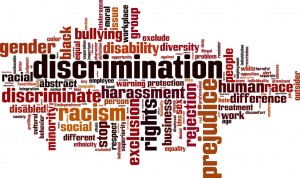Tackling discrimination in housing
Given the increase in race-related hate crime before and since June’s referendum, housing organisations need to be even more alert to possible discrimination in housing than they were before. CIH has already warned about the likely effects in the private rented sector of the new ‘right to rent’ document checks that began in England in February. Recently we’ve produced new guidance for housing associations on how they can make the checks while avoiding unlawful discrimination. And we provide guidance to people who have been discriminated against in housing as well as to those who advise them. We plan soon to issue a new ‘How to…’ guide on tackling racially motivated hate crime.
There is no doubt that the introduction of document checks has increased the incentive for landlords to discriminate, even if only to avoid the extra cost and delays of making the checks, which aren’t straightforward. It is far easier to give preference to potential tenants who can show a UK passport than someone who might have an unfamiliar travel document requiring a call to the Home Office to verify it. The Joint Council for the Welfare of Immigrants, which researched the impact of the pilot scheme of document checks that took place in the West Midlands, found worrying signs of discrimination against people who looked ‘foreign’. Unfortunately, although the ‘right to rent’ scheme is now running England-wide, and may well be extended to Scotland, Wales and Northern Ireland in due course, there appears to be no further government monitoring of its impact.
A huge problem in dealing with discrimination is that, while it may be common, it is notoriously difficult to prove. Many instances occur in a situation where it’s one person’s word against another’s, and it’s rare to find a clear-cut case where the proof of discrimination is self-evident (e.g. if a white person gets an available letting, that was just refused to a black person). Also, victims may be nervous about pursuing cases, fearing that they may suffer further persecution, invite checks on their immigration status, or not be taken seriously. This is why (as with more dramatic hate crime) someone who alleges discrimination must be taken seriously and needs sensitive help from a trusted and experienced agency.
The main body dealing with discrimination is the Equality and Human Rights Commission. It publishes guidance, can take legal action against offenders and used to run a discrimination helpline now called the Equality Advisory Support Service (EASS). In 2012 the helpline contract was handed to a private firm, a decision which attracted criticism from a parliamentary select committee, which in March called for the service to be restored to the EHRC. However, rather than doing so (or putting the service into the hands of another body experienced in dealing with discrimination), the government has let a new contract for the EASS from 1st October, this time to be run by G4S.
This decision has unleashed protests from 40 bodies, led by Liberty, who are calling for an inquiry into the awarding of the contract given the history of complaints against G4S for discriminatory behaviour, documented by Liberty in a detailed dossier. The Law Centres Network, which lobbies on behalf of people who can’t afford a lawyer, has mounted a legal challenge against the contract. And a petition by SumOfUs calling for it to be reviewed has been signed by over 60,000 people. Given such widespread concerns there is clearly a case for government to review its decision to award this contract.
Why does this matter to housing organisations, tenants and potential? – because the growth of hate crime and anecdotal accounts of increased hostility towards migrants are warnings that discrimination appears to be on the increase and – as ever – housing is a field where the consequences can be particularly damaging. If, as a consequence, people suffer bad housing conditions, this has inevitable knock-on effects in other areas of their lives too. Social landlords have to continue to be careful not to be discriminatory themselves, in situations where recent legal changes in the Immigration Acts put them at greater risk of inadvertent discrimination, as we have recently advised. But discrimination is difficult to prove and requires very sensitive and experienced handling. It is vital that a service such as the EASS does just this, and right that the views of agencies that deal with discrimination cases on a daily basis should be taken into account in the reshaping of the service that is about to take place.
Original post: Chartered Institute of Housing
